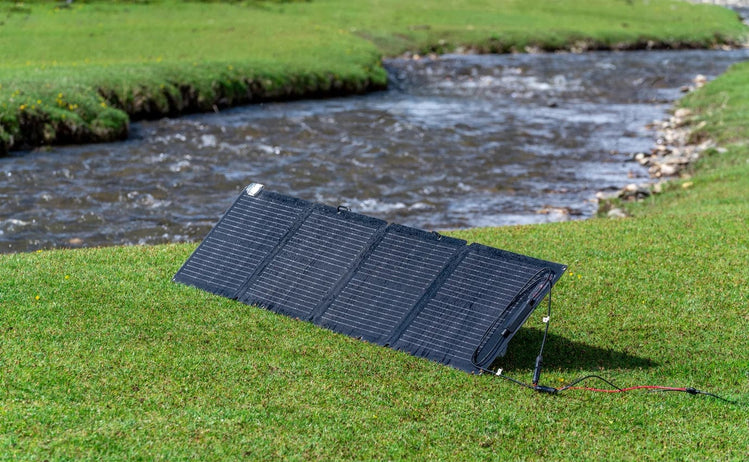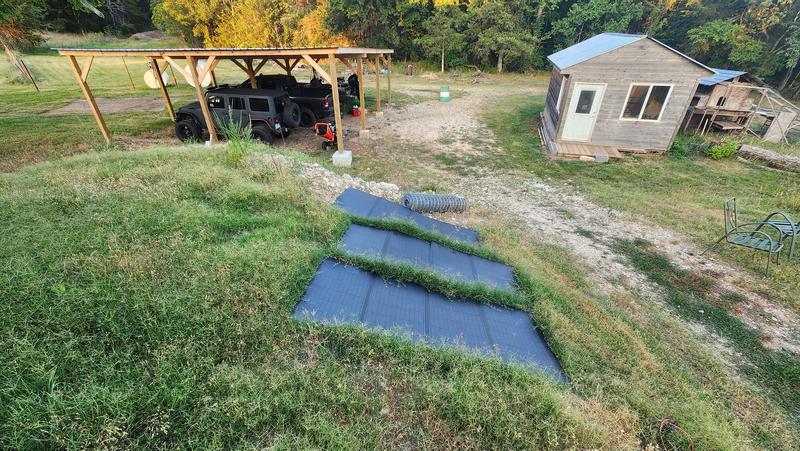Living Off the Grid Complete Guide: Thriving Communities and Sustainable Lifestyles in 2026
- Why Is Living Off the Grid So Attractive in 2026?
- How Do Off-Grid Communities Deal with Essential Needs While Living Off the Grid?
- Where Can You Find the Best Off-Grid Communities?
- How Much Money Do You Need to Live Off the Grid?
- What Issues Could You Encounter While Living Off the Grid?
- Frequently Asked Questions
- Conclusion
Living off the grid is no longer only for survivalists. Nowadays, more Americans are adopting this lifestyle for the right reasons. They seek clean energy, reduced bills, and genuine community relationships. By 2026, living off the grid will become the norm, thanks to advances in technology and a deeper understanding of environmental concerns.
Rising utility bills and power outages are making more and more people anxious, as is climate change. Off-grid communities are a viable solution, combining contemporary convenience and sustainability for the best of both worlds.
Why Is Living Off the Grid So Attractive in 2026?
The advantages of off-grid living extend far beyond mere cost savings. Individuals adopt this lifestyle for a variety of reasons, and the benefits continue to multiply with each passing year.
Quick Money-Saving Ideas
Your electric bill goes away completely. Water costs get very low. Property taxes are usually lower, too. Most families save between $200 and $500 each month. Over ten years, that's a lot of money.
Solar panels take 5-7 years to pay for themselves, and then electricity is free. Wind turbines are best in windy locations. Battery storage provides electricity when the sun is not shining.
Better for the Planet
Off-grid homes use 70% less energy. They produce clean energy and reduce power line loss, reducing your carbon footprint immediately.
Most communities cultivate their own food. Composting toilets convert waste into fertilizer. Rainwater collection systems function in most climates. Everything is recycled or reused.
Freedom to Live Your Way
No one dictates your water or electricity. You make your own decisions about how to live. There are fewer rules in rural areas. You can construct whatever you want on your property.
Community decisions are made in group meetings. Everyone can voice their opinions. No corporate boards or councils dictate actions. True democracy exists here.
How Do Off-Grid Communities Deal with Essential Needs While Living Off the Grid?
Smart planning makes off-grid living comfortable and reliable. Modern communities use proven systems that work year-round.
Power Systems That Never Fail
Solar panels are popular and efficient, even during cloud cover. Wind turbines take over when solar power is lacking. Backup generators handle emergencies.
Battery banks hold energy for nighttime use. Lithium batteries have a longer life than lead-acid batteries. Smart inverters change DC to AC for the devices. The system runs by itself.
Year-Round Clean Water
Wells are the most reliable water source. Solar pumps extract water from underground. Storage tanks conserve water for dry spells. Gravity-fed systems do not need electricity.
Filtration eliminates bacteria and chemicals. UV lights eliminate germs without chemicals. Reverse osmosis renders any water safe for drinking. Several backup systems prevent you from running out.
Intelligent Waste Solutions
Composting toilets resolve sewage problems. They are also odorless when installed correctly. Greywater systems recycle water from sinks and showers. It irrigates gardens and trees.
Septic systems work where composting toilets cannot. Modern systems treat waste safely. Regular maintenance helps everything run well. Most designs are approved by local health departments.


Where Can You Find the Best Off-Grid Communities?
Your location is the most critical factor for off-grid survival. Certain locations are ideal, whereas others are the source of constant problems.
Best States for Off-Grid Living (Ultra-Compact)
| State | Key Advantages | Main Drawbacks | Fit |
| Texas | Strong sun, vast land, light rural oversight, easier water rights | Heat, drought/storms | ★★★★★ |
| Arizona | Excellent sun, relatively low land cost | Scarce water; plan for well/haul/cistern | ★★★★☆ |
| New Mexico | Good sun, lower land prices, rain/graywater friendly | Verify water rights; big day–night swings | ★★★★☆ |
| Nevada | Great sun, very low density | Strict water rights; deep/expensive wells | ★★★★☆ |
| Utah | Very good sun (south/central), pragmatic rural counties | Four-season extremes; formal water rights process | ★★★★☆ |
| Colorado | High-altitude sun | Cold winters; stricter mountain-county codes; higher costs | ★★★☆☆ |
Areas to Approach Carefully(Compact)
| Region / Factor | Challenge | Action | |
| California | Multi-layer regulation, higher costs, wildfire-zone codes | Check county rules and wildfire requirements first | |
| New York | Stricter approvals, higher taxes, colder/cloudier winters | Verify zoning and heating/solid-fuel rules | |
| HOA communities | May limit solar, gardens, sheds, RVs | Get written HOA approval; check state solar-access laws | |
| Cities / dense suburbs | Limits on rain/graywater, composting, outbuildings, RV stays | Confirm municipal ordinances and RV parking rules |
What to Look for in the Land
South-facing slopes provide maximum sunlight. Access to water year-round is crucial. Good soil enhances gardens. Road access facilitates deliveries and emergencies.
Research local building codes prior to purchase. Grid tie-ins may be required by some counties even if you do not desire them. Mineral rights and water rights may be independent of land ownership. Always have a survey completed first.
How Much Money Do You Need to Live Off the Grid?
Costs vary widely based on your goals and location. You can start simple and add features over time.
Startup Costs
A basic solar system requires a moderate initial investment. Well drilling costs depend on your area's water table depth. Septic systems need upfront planning and installation. Land prices vary greatly between rural regions.
Tiny homes offer an affordable entry point. Shipping container conversions provide a middle-ground option. Traditional stick-built homes cost more but offer maximum customization. Used RVs give you the most budget-friendly housing choice.
For beginners looking to test off-grid living or those on a budget, portable power solutions like theEcoFlow DELTA 2 Max can serve as an excellent entry point, providing substantial power capacity while you plan and build your permanent solar installation.
Monthly Expenses
Property taxes stay relatively low in rural areas. Internet service varies by provider and speed. Propane for heating and cooking remains affordable. Regular maintenance and repairs are part of the lifestyle.
Food costs drop significantly when you grow your own. Seeds and gardening tools pay for themselves quickly. Preserved foods last months without refrigeration. Many communities share bulk buying to reduce expenses.


What Issues Could You Encounter While Living Off the Grid?
All lifestyles have difficulties. Off-grid living demands planning and adaptability in order to cope with issues as they arise.
Technical Challenges
Social Changes
Not everyone gets off-grid living. Family members might be concerned about your safety, and neighbors may think you are strange. Building good relationships with the community needs time and effort.
Dating may be more difficult in the country. There are fewer entertainment options close by. Medical care could be a distance away. The Internet is usually slower than urban connections.
Frequently Asked Questions
Q1: Can I Live Comfortably off the Grid With Modern Amenities?
Yes. Off-grid homes offer amenities like hot showers, refrigeration, internet, and entertainment. It all comes down to proper system sizing and quality equipment. Most off-gridders find they have an improved quality of life after they make the switch. You'll enjoy reliable power, clean water, and reduced stress. The only adjustment is being mindful of energy and water use, but it's second nature in no time.
Q2: What Do You Do When There Is a Long Stretch of Bad Weather When You Are Living off the Grid?
Properly designed off-grid systems are more capable of withstanding bad weather than you might expect. Battery banks store power for several days in cloudy weather. Backup generators kick in during extremely bad weather. Most communities utilize micro-hydro systems that operate year-round regardless of the weather. Food storage and preservation become increasingly important, but most off-grid families already store 3-6 months of supplies. The trick is to prepare and have multiple backup systems available.
Q3: How Do You Deal With Medical Emergencies in the Wilderness?
Most off-grid locations are 30 to 60 minutes from medical assistance. Satellite phones and radios allow communication during emergencies when cell towers cannot be accessed. Many take first aid and CPR training. Life Flight services can access most areas quickly for serious problems. Some properties have on-site nurse practitioners or paramedics. Select a site that offers privacy while being near essential services.
Q4: Is Off-Grid Living Suitable for Families With Small Children?
Most families believe off-grid living is ideal for kids. Kids acquire valuable skills such as gardening, basic repair, and resource conservation. They are outdoors more and on screens less. Homeschooling is prevalent, but some locations have decent schools nearby. Concerns for safety regarding wells and solar panels require the same attention as any rural property. Children in off-grid neighborhoods tend to become more resourceful problem solvers and more environmentally conscious than children in urban environments.
Conclusion
Off-grid living in 2026 offers real solutions for those tired of high costs and unreliable utilities. The technology works, communities exist, and the lifestyle delivers.
You don't need wealth or expertise to succeed. Visit existing communities and talk to residents who've made the switch.
Ready to start? Research communities in your preferred area. Connect with current residents online. Land remains affordable, and technology costs keep dropping.
Take action today. Your future self will thank you for choosing freedom and sustainability.
For press requests or interview opportunities, reach out to our media team
media.na@ecoflow.com